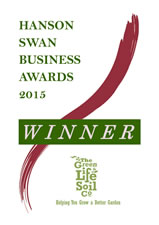| item(s), Total: $0.00 View Cart |
| Shopping cart is empty. |
We trust you had a lovely Easter break and ANZAC Day long weekend - lovely to have a bit of extra time to spend with family, friends and in the garden! School holidays are over & we're really in full swing of the year heading into Term 2. Looking back, we were in lockdown ANZAC weekend 2021 and in 2020 April was just at the beginning of the whole Covid craziness! It's been a real rollercoaster for everyone over the last couple of years - it seems like we might be coming through the tunnel now with a lot of restrictions lifted and life almost back to normal... Almost. We'd like to thank our customers for your continued support throughout. It still seems that gardening - and in particular - growing some of your own food is still a high priority for many families, given the rising prices of so many commodities that have flowed through to the supermarket shelves. If you'd like advice on how to get started, or on how to improve your vegie garden - please feel free to talk to us and bring in a small sample of your soil for us to pH test and have a look at. Paul is constantly looking at our soils & mixes and trialing different things - we've recently brought in a new type of loam (exclusive to GLSC) which we're using as a base for some of our mixes. It's been lab tested and contains a range of beneficial minerals and kaolin clay - it seems to really open up the structure and Paul is loving how it's working - boldly claiming it's making our Vegetable Mix the "best ever" recipe... So if you're setting up a new garden - come on in and give it a try; we'd love your feedback. So what's happening in May?? There's lots! The first Sunday in May was "International Permaculture Day" & the first Saturday in May is "World Naked Gardening Day"; two quite different ways to celebrate our love and appreciation for the natural world! Plus we've got Mother's Day coming up this weekend (hope you're planning on spoiling your mum!). The Perth Garden Festival was originally scheduled for May but due to Covid restrictions has now been moved to October (so its something to look forward to in Spring). The First week in May is "International Composting Awareness Week"; "World Bee Day" is May 20th & the "International Day for Biological Diversity" is May 22nd - same day as the Kalamunda Garden Festival which is gearing up to be a HUGE event! Green Life Soil Co will have a small stand there on the day - so do come along and say hello! It's on at Stirk Park in Kalamunda between 9am and 2.00pm. There are talks planned with Costa & Sabrina - so make sure you check them out as bookings are essential (and filling fast!).
Until next time, Linda and the Team @ The Green Life Soil Co In this newsletter:Jobs to do in the May garden Jobs to do in the May garden
Cleaning: Raking leaves from deciduous trees, cleaning out gutters or pruning perennials can be a little tedious but can also be super beneficial to your compost pile while preparing for colder weather.
Pests: With the rain coming it brings in those pesky snail and slugs. Making an adventure of going out there with a torch and a bucket at night collecting snails can be fun to do with kids, and also quite effective; you can dramatically bring down their numbers over the course of a few nights! You can squish them or drop them in some hot salty water. See our free fact sheet on pest recipes here. If you MUST use pellets, choose an iron based compound (like Multiguard or Protect-US - safer for pets and native animals). We have found the iron based pellets are also effective against slaters. Diseases: With colder weather coming that means damper conditions and the more risk of fungal diseases. Keep an eye on your plants and act quickly to remove infected leaves or entire plants (if necessary), or treat them with an anti-fungal spray. Allowing adequate air flow around susceptible plants is important. Summer crops that are still in the garden tend to be most susceptible and this is a normal sign they're coming to the end of their season. It might be time to remove your zucchini or tomato and plant something else. Check out our crop rotation fact sheet here.
What to Plant NowAutumn/Winter has been a little late arriving so I believe there's still time to grow many things from seed if you get cracking ASAP. It's fun to grow your own vegies from seed, but it's always a gamble to time seed raising just right- it's safer using seedlings (and you get a jump start of 4-6 weeks to harvest). Personally I like to do a mixture of both. Seedlings can get things off to a flying start and then you can raise seeds for your succession planting to follow up in coming weeks. Some winter vegies to plant now are:
If you're still looking to plant garlic as I write this we do have stock still available. If we run out, I'd suggest you visit a good local growers' mart (or farmers' market) and find some local WA grown garlic to plant. It's not too late but you'll want to get it in the ground asap. It's very important from a biosecurity perspective NOT to plant imported/interstate garlic which is intended for eating (not planting) and may potentially introduce disease. We still have Manjimup grown Certified Organic Seed Potatoes in stock. We have “Laura” which is an oval red skinned potato great for roasting, mashing, wedges and baking; and "Delaware" a popular all purpose brown skinned potato good for baking, mashing and boiling, and "Dutch Cream" a very popular brown skinned potato with a creamy yellow flesh that is good for frying, mashing and boiling. There's limited stock available so don't delay! Want tips on the best way to grow spuds? Or Garlic? Check out our fact sheets here. Our handy 'when to plant guide for Perth' is FREE to download - once you've signed up as a GLSC member you can sign back in anytime to download all of our useful guides.
Revamping Your Garden for Winter Crops
For more useful Autumn gardening tips - check out our free guide here! Coriander - Love it or Hate it? It's time to grow it!
Coriander is probably one of herbs most used in the world - known in the Mediterranean region, Africa and the Middle East, South America, central Asia, India, and China; seeds have been found in ancient Egyptian tombs. While we (well those that love it!) tend to prize the fresh leaves, the seeds are also a popular herb (dried and crushed). American gardening books use the terms 'Cilantro' to describe the fresh herb and 'Coriander' to describe the mature seeds. Immature seeds are bitter, but once mature they have a mild & slightly sweet taste, making them useful in baking & cakes as well as for use in savory dishes. Traditionally seeds were chewed to assist with digestive issues. Coriander (Coriandrum sativum) is an aromatic herb in the Apiaceae family of plants. It doesn't cope well with Perth summers - so we plant it in Autumn and grow it through the cooler months. Some people can successfully grow it year-round - but you need to make sure you have it perfectly sited and pander to it completely. It thrives in full sun in Winter - but in warmer months MUST have shade, protection from drying winds and very regular water. If Coriander is stressed or unhappy, it will bolt to seed very quickly. This has perhaps been bred into the plant - after all, it has been grown for its seeds as much as the leafy part of the plant. Happy Coriander is pest & disease free - so it's worth experimenting to find the right spot in your garden where it will thrive. There are varieties sold as "Slow Bolting" - I'm not sure whether this is an improved variety or just clever marketing. For those of you who love the taste of fresh Coriander year round - there is a distant relative of normal Coriander sold as 'Mexican Coriander' - confusingly known as Culantro (Eryngium foetidum). It looks completely different but has the same smell & taste. It is much more heat tolerant so is a good alternative to grow over summer. Culantro can be grown from seed or you'll find it in the herb section of nurseries in Spring.
Coriander can be grown in pots as long as they're not too small. Plants can grow to 30-50cms but you can keep it more compact by harvesting regularly. Trim stems with scissors. Excess leaves can be dried or frozen for use another time. It's a great flavour partner for tomatoes, basil & adds zing to guacamole. All parts of Coriander are edible - add stems & root to stews or soups. Coriander is a good companion plant for many winter crops - including leafy greens like spinach and lettuce, brassicas like cabbage, cauliflower, broccoli, dill and potatoes. VIP Special Offer
So this month, we're giving you a healthy discount on our bulk recycled tree prunings mulch. Normally $22 per scoop ($44 per trailer /$66 per cubic metre ) - hop in quick to get it at $15 per scoop, ($30 per trailer/$45 per cubic metre) (with even MORE savings if you order it to be delivered in full truck loads - we'll offer 25% off the total cost including delivery [for loads 5m3 or more only]). Please ask for the discount in store or over the phone if booking a bulk delivery. Photo Competition WinnerPlease remember to keep your photos coming in! We draw a winner at random every month who gets a $50 store credit to spend with us. Send us in a picture or two with a brief comment about your garden and what you're growing - and YOU could win next time. Send them in via email or you can submit via our Facebook page - please use subject "Photo Competition". This month I didn't get a single entry - so here's some photos from OUR garden instead! I guess that means I get to go shopping???? :-D The middle photo below is of a raised bed where I have sown a whole heap of seed - radish, beetroot, lettuce, carrot. Because the seed is so tiny I really just scattered it on top and gave a very light sprinkle of soil over the top. As the raised bed is quite high (you can see it behind the pumpkin in the first photo) it tends to dry out - so I use a scrap of old insect netting (shadecloth of any colour would work just as well) to use over the top. It doesn't really matter if it touches the soil. Water can permeate, and it's there only until the seeds have germinated - then it will be removed. But this tip helps germination in dryer conditions - particularly for tiny seed. I check daily - a few seeds are just emerging now (right pic).
Retailer UpdatePlease support your local independent retailer who supports us! The specialist retailers listed here will be happy to give you gardening advice and help you with our products - please call to check what lines they carry as they can't stock all of our products. With Mother's Day just around the corner maybe take her to a lovely garden centre and enjoy the day together.
Ardess Nursery (Albany) 9842 9952 THANK YOU for being part of The Green Life Family! Keep up to date with news & info on our Facebook and Instagram pages. |

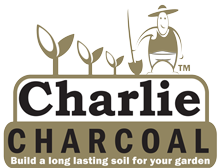

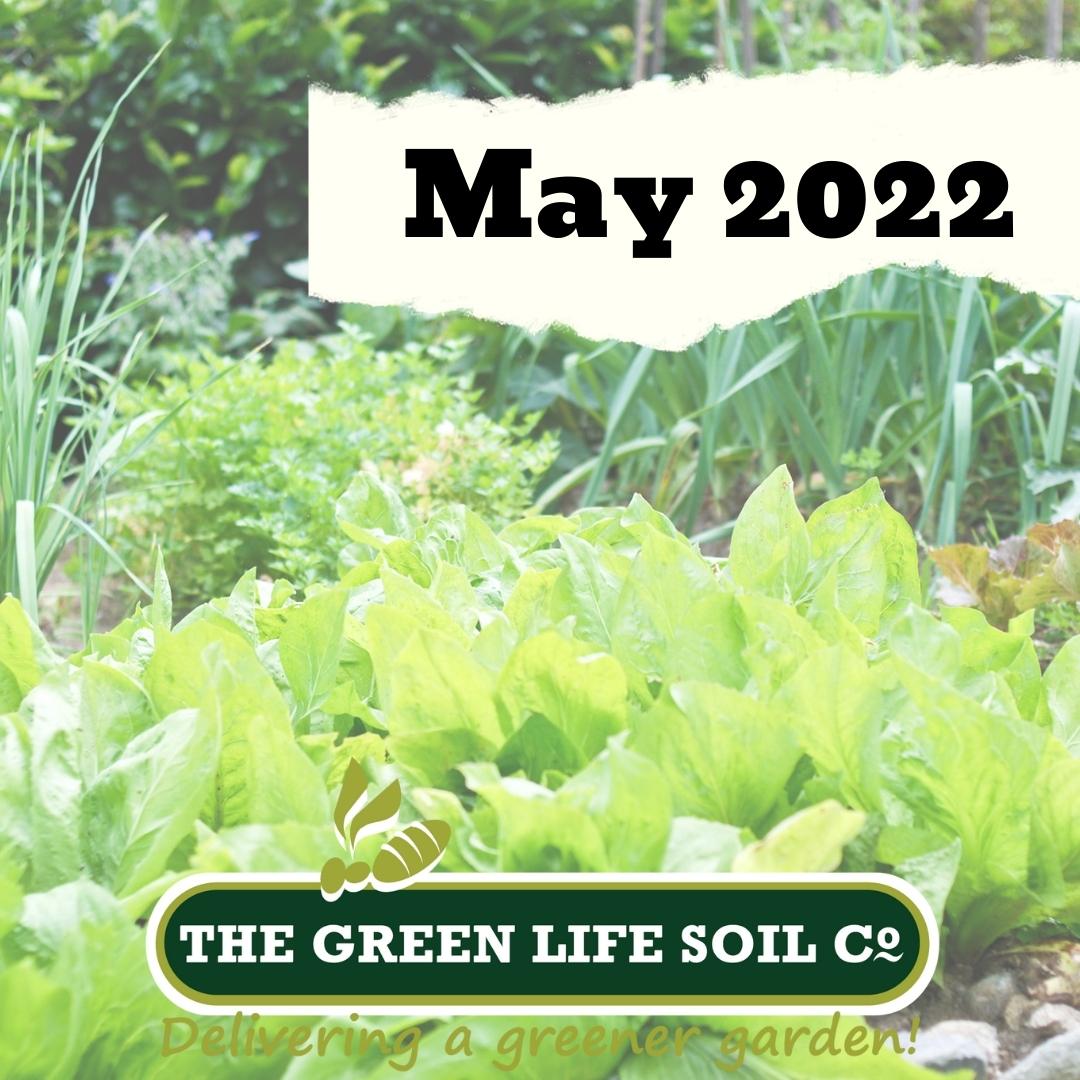 Welcome to May! We're well into Autumn at last - with some welcome rains finally arriving as a taster; let's hope there's more to come. These mild and sunny days are just wonderful though - it's such a great time to be in the garden - so we aim to inspire you this month to get busy.
Welcome to May! We're well into Autumn at last - with some welcome rains finally arriving as a taster; let's hope there's more to come. These mild and sunny days are just wonderful though - it's such a great time to be in the garden - so we aim to inspire you this month to get busy.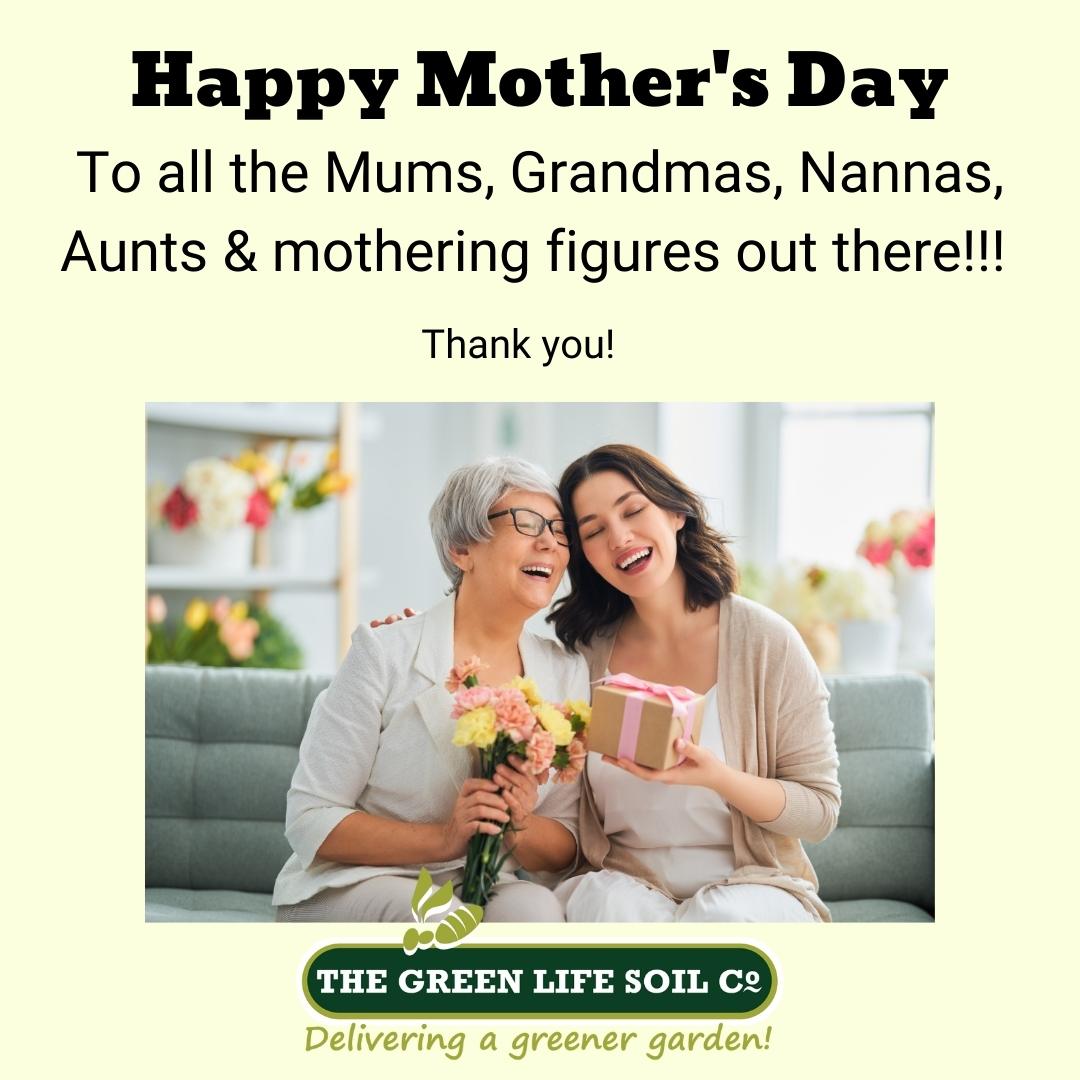 So there's loads to do over the coming few weeks - around town AND in your garden! Time to get outside and enjoy this fabulous weather.
So there's loads to do over the coming few weeks - around town AND in your garden! Time to get outside and enjoy this fabulous weather.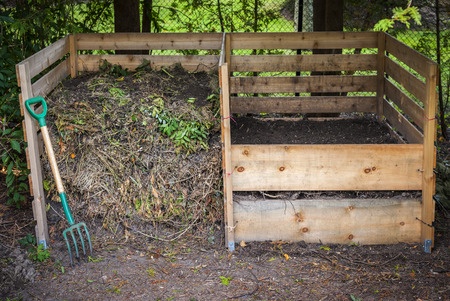 Composting: If you haven't checked your compost in a while, now is the perfect time to do so. Turning your compost will aerate and oxygenate your pile allowing the essential three natural elements air, moisture and heat to continue the decomposition process. Turning your pile will also solve some composting problems such as odors. A great way to test your compost pile is to feel it. If it feels too dry you may have too much brown matter (leaves, straw and paper). If it feels too wet you may have too much green matter (vegetable scraps, grass clippings).
Composting: If you haven't checked your compost in a while, now is the perfect time to do so. Turning your compost will aerate and oxygenate your pile allowing the essential three natural elements air, moisture and heat to continue the decomposition process. Turning your pile will also solve some composting problems such as odors. A great way to test your compost pile is to feel it. If it feels too dry you may have too much brown matter (leaves, straw and paper). If it feels too wet you may have too much green matter (vegetable scraps, grass clippings). 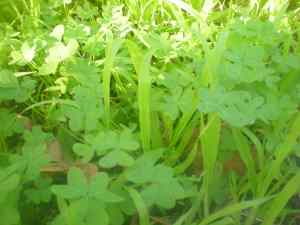 Weeds: While weeds are small and before they take over, use a hoe to chop them back into your soil - it's basically free green manure! Just keep an eye on the tenacious ones which may keep growing if still rooted into soil. This method tends to be quicker than hand weeding once the weeds get larger. Weeding sounds dull but its best to get onto it now before it gets out of control as the season really sets in. You can always add weeds without seeds to you compost pile and have the satisfaction of a weed free garden. Use weeds to make a liquid fertiliser -
Weeds: While weeds are small and before they take over, use a hoe to chop them back into your soil - it's basically free green manure! Just keep an eye on the tenacious ones which may keep growing if still rooted into soil. This method tends to be quicker than hand weeding once the weeds get larger. Weeding sounds dull but its best to get onto it now before it gets out of control as the season really sets in. You can always add weeds without seeds to you compost pile and have the satisfaction of a weed free garden. Use weeds to make a liquid fertiliser - 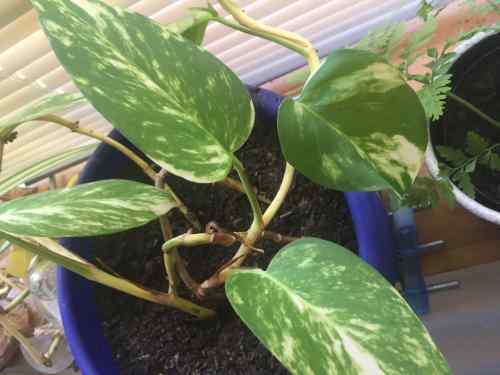 Look after your indoor plants: Testing your indoor plants and their soil moisture is important, and as simple and easy as sticking your finger in the dirt - quite literally. Insert your finger a few cms into the soil. If the soil feels dry your plant probably needs a drink. If it feels wet and soggy it may have too much water and you might need to drain any excess. You may find as it gets colder you have to water indoor plants less and only have to give plants a drink when soil starts to feel dry (rather than the usual scheduled weekly or fortnightly in hotter months). If your soil remains damp, you're likely to attract fungus gnats, which are annoying little flies that hang around your plants (and seem to always fly (a) up your nose, and (b) land in your glass of wine). See more indoor plant tips in our
Look after your indoor plants: Testing your indoor plants and their soil moisture is important, and as simple and easy as sticking your finger in the dirt - quite literally. Insert your finger a few cms into the soil. If the soil feels dry your plant probably needs a drink. If it feels wet and soggy it may have too much water and you might need to drain any excess. You may find as it gets colder you have to water indoor plants less and only have to give plants a drink when soil starts to feel dry (rather than the usual scheduled weekly or fortnightly in hotter months). If your soil remains damp, you're likely to attract fungus gnats, which are annoying little flies that hang around your plants (and seem to always fly (a) up your nose, and (b) land in your glass of wine). See more indoor plant tips in our 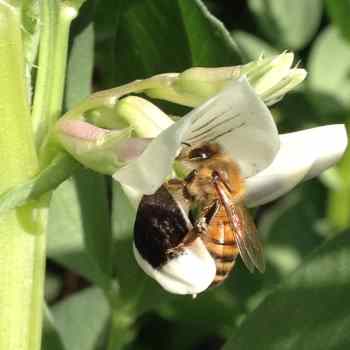 Artichokes (Globe - it's still a little early to find Jerusalem Artichokes but they're not far away!), Asian greens, Beetroot, Broad Beans, (flowers pictured right) Broccoli, Cabbage, Carrots, Cauliflower, Celery, Coriander, Dill, Garlic, Kale, Kohl Rabi, Leek, Lettuce, Onion, Parsnip, Peas, Potatoes, Radish, Silver beet, Snow peas, Spinach, Spring Onion, Strawberries, Swede, Turnip.
Artichokes (Globe - it's still a little early to find Jerusalem Artichokes but they're not far away!), Asian greens, Beetroot, Broad Beans, (flowers pictured right) Broccoli, Cabbage, Carrots, Cauliflower, Celery, Coriander, Dill, Garlic, Kale, Kohl Rabi, Leek, Lettuce, Onion, Parsnip, Peas, Potatoes, Radish, Silver beet, Snow peas, Spinach, Spring Onion, Strawberries, Swede, Turnip.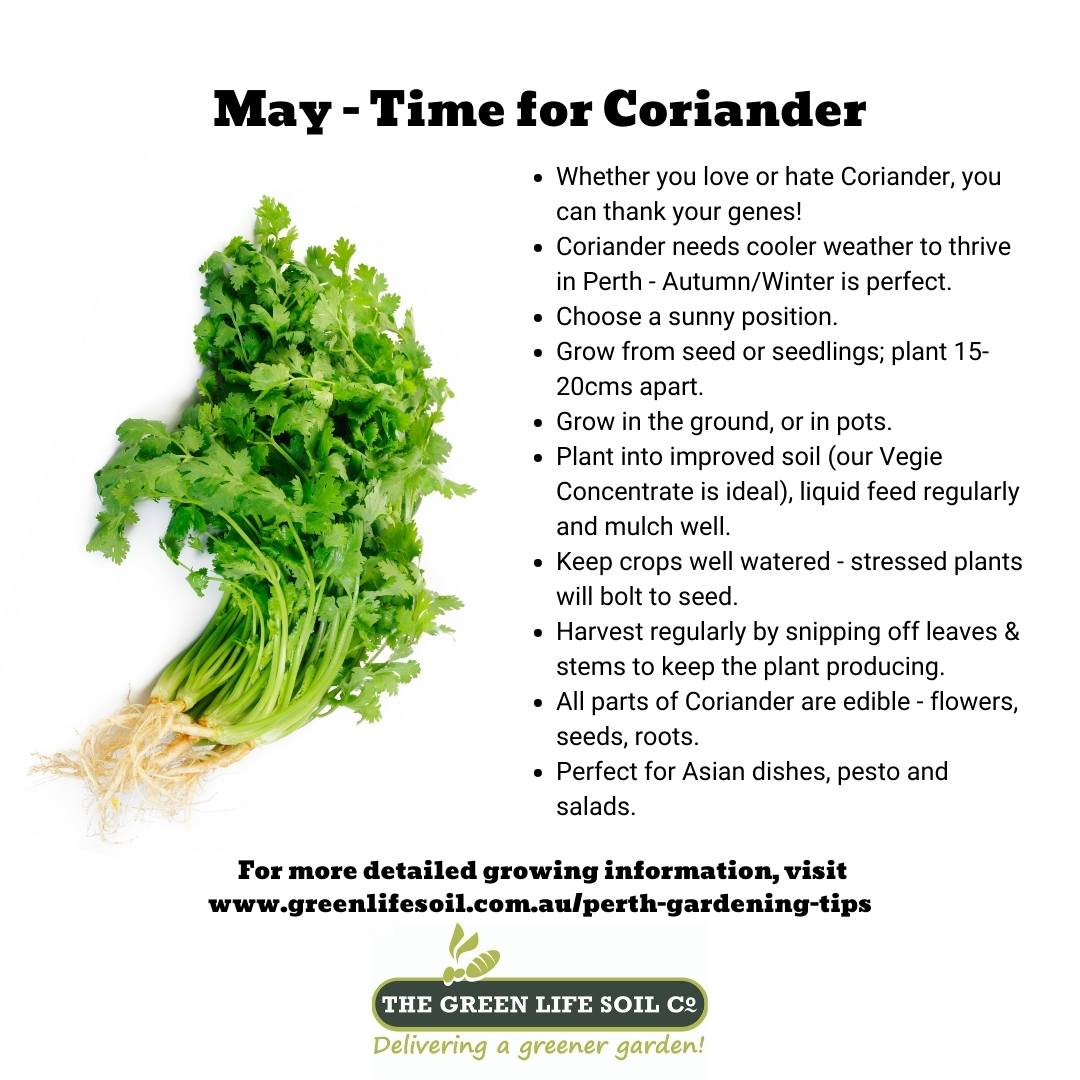
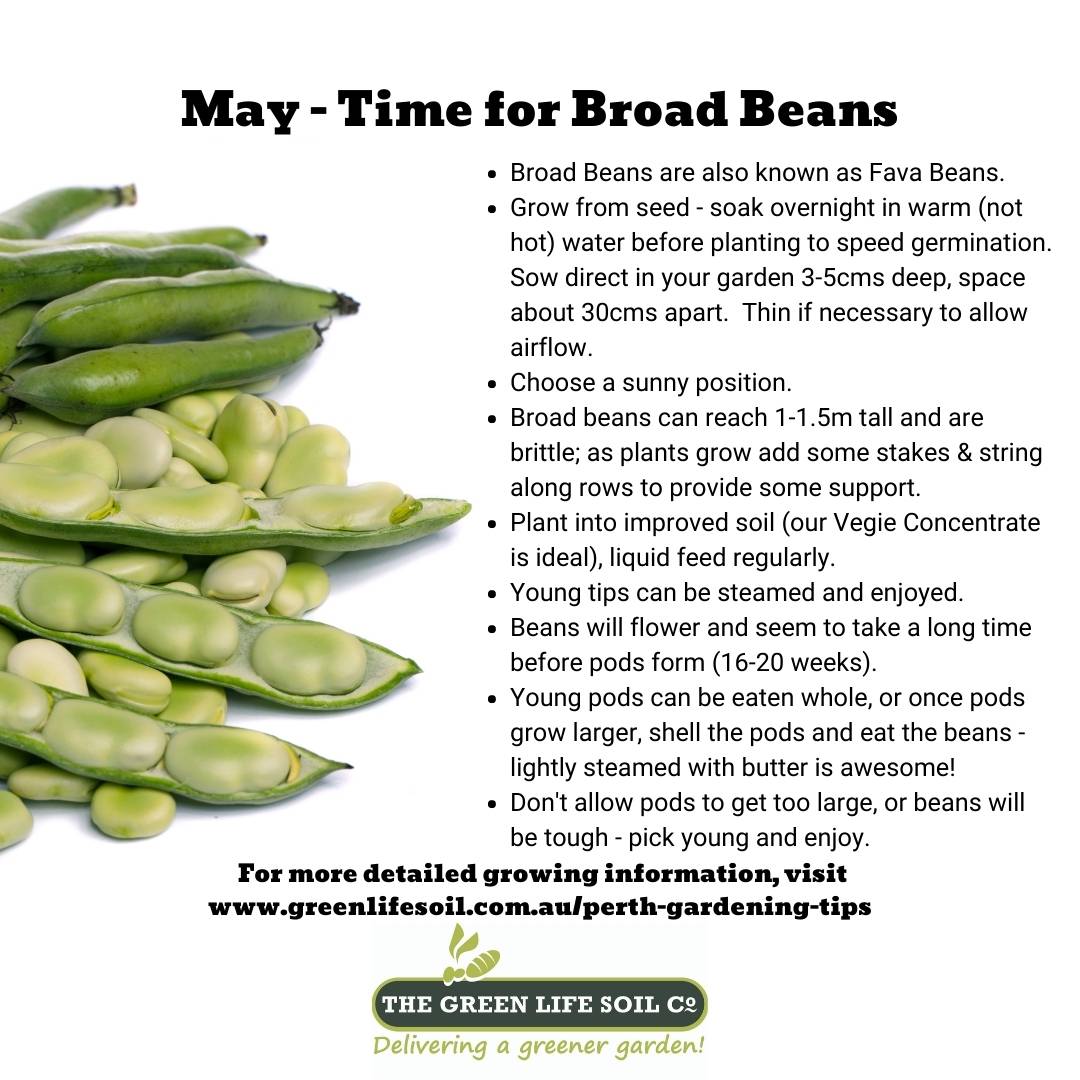
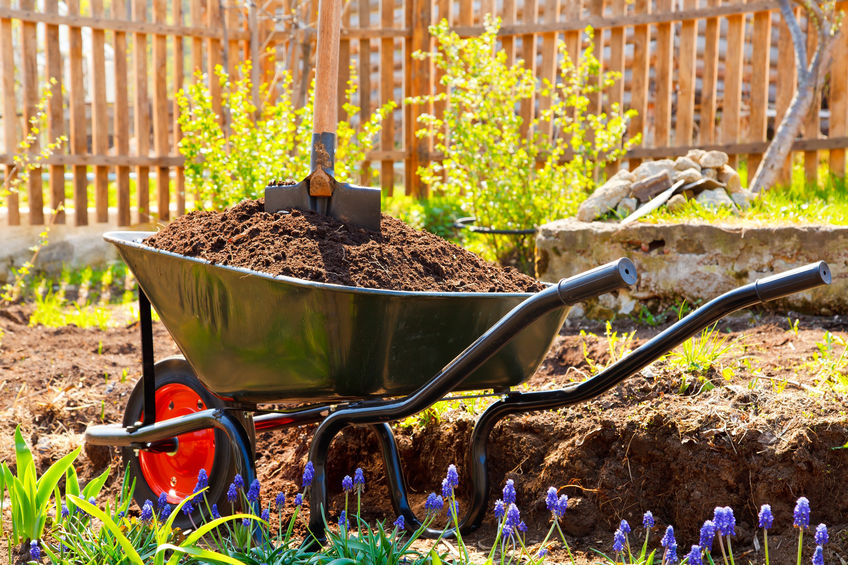 If you've just removed the last of your summer crops, now's the perfect time to revamp your garden beds for Winter planting here in Perth. Here are some tips to consider:
If you've just removed the last of your summer crops, now's the perfect time to revamp your garden beds for Winter planting here in Perth. Here are some tips to consider: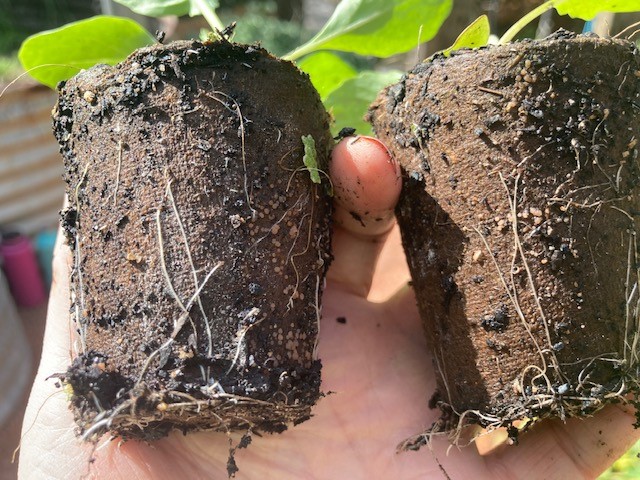 Once you've done all the planning, then the fun part starts! Plant away. It's a great idea to water in your seedlings/seeds with a light dose of a
Once you've done all the planning, then the fun part starts! Plant away. It's a great idea to water in your seedlings/seeds with a light dose of a 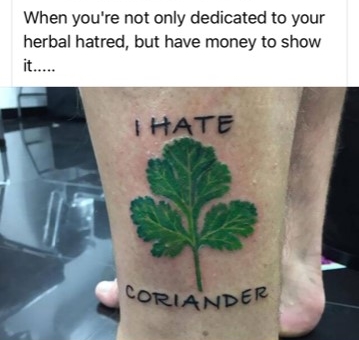 Coriander is also known as Cilantro - in some places, it is also known as Chinese parsley. I've also heard it referred to as "The Devil's Herb" - and it certainly is a divisive little plant! Some of us love the fresh and zingy taste it adds to winter soups & curries - others think it tastes like soap and would rather cut off an arm than be forced to eat it. Interestingly, it DOES contain the chemical compounds found in soap - and Scientists tell us that genetically some people (about 15% of the population) are more sensitive to these compounds than others. There's an "I hate Coriander" Facebook page with 284,000 followers (it shares some pretty funny stuff - see photo!) - so yep - it's divisive!
Coriander is also known as Cilantro - in some places, it is also known as Chinese parsley. I've also heard it referred to as "The Devil's Herb" - and it certainly is a divisive little plant! Some of us love the fresh and zingy taste it adds to winter soups & curries - others think it tastes like soap and would rather cut off an arm than be forced to eat it. Interestingly, it DOES contain the chemical compounds found in soap - and Scientists tell us that genetically some people (about 15% of the population) are more sensitive to these compounds than others. There's an "I hate Coriander" Facebook page with 284,000 followers (it shares some pretty funny stuff - see photo!) - so yep - it's divisive!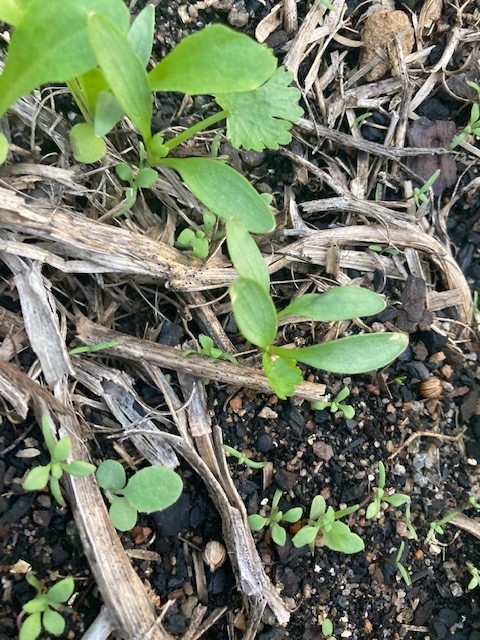 Coriander/Cilantro can be grown from seed at this time of year, or you'll find seedlings in nurseries. It's worthwhile allowing Coriander in your garden to go to seed at the end of the season - its flowers are hugely attractive to bees and hoverflies. They're quite delicate and pretty! You can either collect the drying seed heads or allow them to self seed in your garden - if they've been happy in the spot they are most likely going to self-sow every year for you. (Top tip - emerging seedlings look like parsley. To tell the difference, crush a leaf - the smell is a dead giveaway.) Coriander doesn't like to be disturbed too much so transplant when young (and select smaller seedlings rather than bigger ones!). It grows well in improved soil, and appreciates a liquid feed from time to time. (Pic right - self sown coriander in our garden)
Coriander/Cilantro can be grown from seed at this time of year, or you'll find seedlings in nurseries. It's worthwhile allowing Coriander in your garden to go to seed at the end of the season - its flowers are hugely attractive to bees and hoverflies. They're quite delicate and pretty! You can either collect the drying seed heads or allow them to self seed in your garden - if they've been happy in the spot they are most likely going to self-sow every year for you. (Top tip - emerging seedlings look like parsley. To tell the difference, crush a leaf - the smell is a dead giveaway.) Coriander doesn't like to be disturbed too much so transplant when young (and select smaller seedlings rather than bigger ones!). It grows well in improved soil, and appreciates a liquid feed from time to time. (Pic right - self sown coriander in our garden)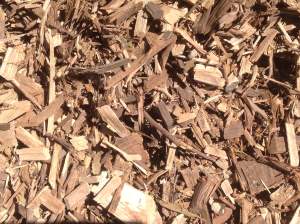 Autumn is a great time to get a really thick layer of woody
Autumn is a great time to get a really thick layer of woody 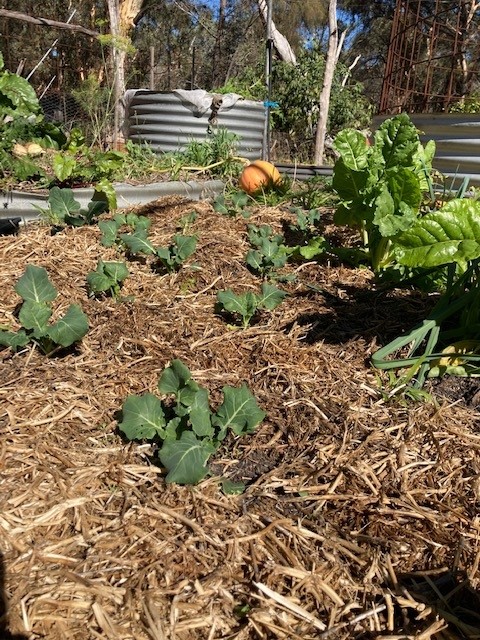
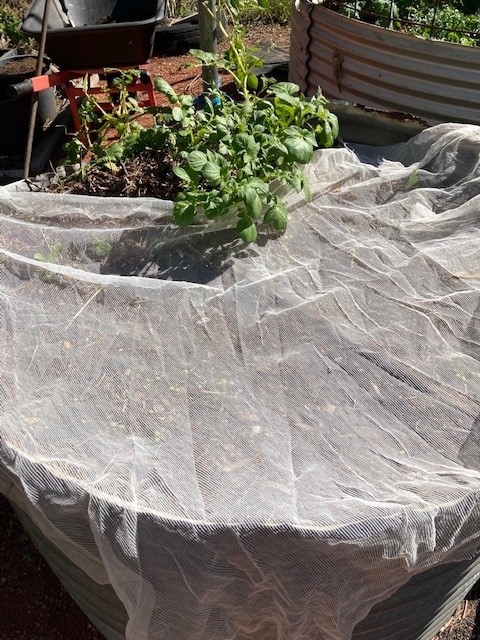
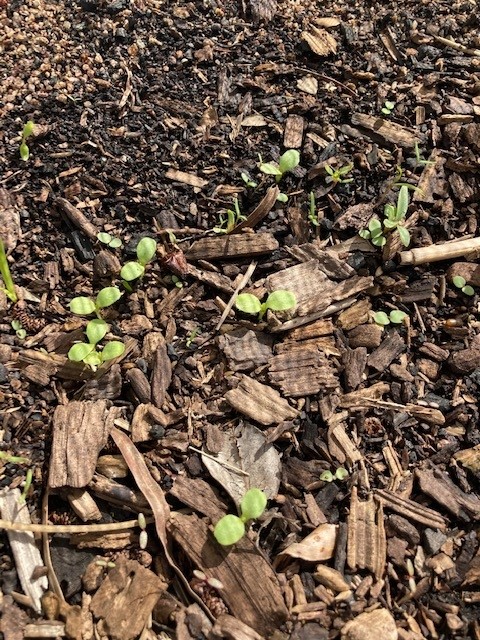
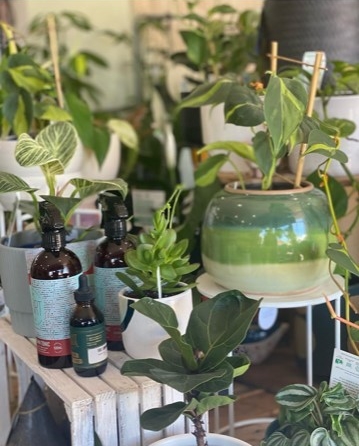 Evergreen Studio - North Beach 0419 091 095 (Pictured right)
Evergreen Studio - North Beach 0419 091 095 (Pictured right)







